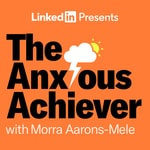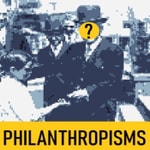PsyberSpace: Understand Your World – Détails, épisodes et analyse
Détails du podcast
Informations techniques et générales issues du flux RSS du podcast.

PsyberSpace: Understand Your World
Leslie Poston
Fréquence : 1 épisode/7j. Total Éps: 69

Classements récents
Dernières positions dans les classements Apple Podcasts et Spotify.
Apple Podcasts
🇺🇸 États-Unis - socialSciences
03/08/2025#87🇬🇧 Grande Bretagne - socialSciences
02/07/2025#93🇬🇧 Grande Bretagne - socialSciences
01/07/2025#77🇬🇧 Grande Bretagne - socialSciences
30/06/2025#54🇬🇧 Grande Bretagne - socialSciences
29/06/2025#37🇬🇧 Grande Bretagne - socialSciences
28/06/2025#49🇬🇧 Grande Bretagne - socialSciences
19/06/2025#91🇬🇧 Grande Bretagne - socialSciences
18/06/2025#61🇺🇸 États-Unis - socialSciences
18/06/2025#76🇬🇧 Grande Bretagne - socialSciences
17/06/2025#41
Spotify
Aucun classement récent disponible
Liens partagés entre épisodes et podcasts
Liens présents dans les descriptions d'épisodes et autres podcasts les utilisant également.
See allQualité et score du flux RSS
Évaluation technique de la qualité et de la structure du flux RSS.
See allScore global : 79%
Historique des publications
Répartition mensuelle des publications d'épisodes au fil des années.
Small Steps, Big Impact: Psychology To Help You Take Action In Overwhelming Times
Saison 2 · Épisode 5
lundi 3 février 2025 • Durée 23:10
Harnessing Small Actions for Big Change in Overwhelming Challenges
In this episode of PsyberSpace, host Leslie Poston explores how to take meaningful actions when facing seemingly insurmountable challenges. Through insights from various psychological studies, Leslie explains why our brains often shut down when faced with massive issues, and how small, strategic steps can break this paralysis. The episode dives into concepts such as learned helplessness, behavioral activation, and small wins, emphasizing the neuroscientific and social impacts of taking small actions. Additionally, it covers practical strategies from behavioral science and social movements to create sustainable, connective, and scalable actions. The takeaway is clear: even insignificant actions, when designed thoughtfully, can lead to significant and lasting change.
00:00 Introduction to Meaningful Action
00:49 Understanding Cognitive Paralysis
02:15 Breaking Down Challenges
03:06 The Power of Small Wins
03:56 Neuroscience of Small Actions
05:12 Social Networks and Behavioral Cascades
08:03 Strategic Small Steps
14:56 Overcoming Psychological Barriers
20:55 Maintaining Momentum
22:05 Conclusion and Homework
References:
Amabile, T. M. (2011). The progress principle: Using small wins to ignite joy, engagement, and creativity at work. Harvard Business Review Press.
Bandura, A. (1997). Self-efficacy: The exercise of control. W.H. Freeman and Company.
Boggs, G. L. (2011). The next American revolution: Sustainable activism for the twenty-first century. University of California Press.
brown, a. m. (2017). Emergent strategy: Shaping change, changing worlds. AK Press.
Christakis, N. A., & Fowler, J. H. (2009). Connected: The surprising power of our social networks and how they shape our lives. Little, Brown and Company.
Csikszentmihalyi, M. (1990). Flow: The psychology of optimal experience. Harper & Row.
Duckworth, A. (2016). Grit: The power of passion and perseverance. Scribner.
Duncan, L. E. (2012). The psychology of collective action. In The Oxford handbook of personality and social psychology. Oxford University Press.
Dweck, C. S. (2006). Mindset: The new psychology of success. Random House.
Ganz, M. (2010). Leading change: Leadership, organization, and social movements. In Handbook of leadership theory and practice. Harvard Business Press.
Gelfand, M. J. (2018). Rule makers, rule breakers: How tight and loose cultures wire our world. Scribner.
Gould, D. B. (2009). Moving politics: Emotion and ACT UP's fight against AIDS. University of Chicago Press.
Graybiel, A. M. (2008). Habits, rituals, and the evaluative brain. Annual Review of Neuroscience, 31, 359-387.
Granovetter, M. S. (1973). The strength of weak ties. American Journal of Sociology, 78(6), 1360-1380.
Haidt, J. (2003). Elevation and the positive psychology of morality. In C. L. M. Keyes & J. Haidt (Eds.), Flourishing: Positive psychology and the life well-lived. American Psychological Association.
Jasper, J. M. (2011). Emotions and social movements: Twenty years of theory and research. Annual Review of Sociology, 37, 285-303.
Kahneman, D. (2011). Thinking, fast and slow. Farrar, Straus and Giroux.
Klandermans, B. (1997). The social psychology of protest. Blackwell Publishers.
Lieberman, M. D. (2013). Social: Why our brains are wired to connect. Crown.
Meadows, D. H. (1999). Leverage points: Places to intervene in a system. The Sustainability Institute.
Morris, A. D. (1984). The origins of the civil rights movement: Black communities organizing for change. Free Press.
powell, j. a. (2012). Racing to justice: Transforming our conceptions of self and other to build an inclusive society. Indiana University Press.
Putnam, R. D. (2000). Bowling alone: The collapse and revival of American community. Simon & Schuster.
Reicher, S. (2004). The context of social identity: Domination, resistance, and change. Political Psychology, 25(6), 921-945.
Richeson, J. A. (2018). The psychology of racial bias and discrimination. Annual Review of Psychology.
Robnett, B. (1997). How long? How long? African-American women in the struggle for civil rights. Oxford University Press.
Sampson, R. J. (2012). Great American city: Chicago and the enduring neighborhood effect. University of Chicago Press.
Sapolsky, R. M. (2017). Behave: The biology of humans at our best and worst. Penguin Press.
Sen, R. (2003). Stir it up: Lessons in community organizing and advocacy. Jossey-Bass.
Shim, R. S. (2018). Cultural competency in mental health care. Psychiatric Clinics of North America.
Small, M. L. (2009). Unanticipated gains: Origins of network inequality in everyday life. Oxford University Press.
Tajfel, H., & Turner, J. C. (1979). An integrative theory of intergroup conflict. In The social psychology of intergroup relations. Brooks/Cole.
Watts, D. J. (2011). Everything is obvious: Once you know the answer. Crown Business.
Weick, K. E. (1984). Small wins: Redefining the scale of social problems. American Psychologist, 39(1), 40-49.
Westley, F. R. (2013). Social innovation and resilience: How one enhances the other. Stanford Social Innovation Review.
Winn, M. T. (2018). Justice on both sides: Transforming education through restorative justice. Harvard Education Press.
★ Support this podcast ★The Psychological Power of Art and Creativity: Why We Create and How It Shapes Us
Saison 2 · Épisode 4
lundi 27 janvier 2025 • Durée 18:42
The Psychological Power of Art and Creativity: Exploring Why We Create
In this episode of PsyberSpace, hosted by Leslie Poston, we explore the profound psychological impact of art and creativity. Using examples like Dylan Thomas's poem 'Do Not Go Gentle into That Good Night' and Maya Angelou's 'Still I Rise,' the episode delves into why art moves us and how creativity nurtures our mental well-being. The discussion touches on how art activates brain reward centers, fosters empathy, and acts as a form of resistance and resilience, especially for marginalized communities. The episode also emphasizes the therapeutic benefits of engaging in creative activities and encourages listeners to incorporate more art and creativity into their daily lives.
00:00 Introduction to PsyberSpace
00:26 The Psychological Power of Art and Creativity
00:54 Analyzing Dylan Thomas's Iconic Poem
01:39 The Neuroscience Behind Art's Impact
02:47 Art as a Shared Experience
04:38 The Role of Metaphor in Art
05:32 Art as a Catalyst for Change
07:14 The Therapeutic Power of Creativity
09:31 Creativity in the Digital Age
11:51 Art as Cultural Preservation and Resistance
16:07 Practical Tips for Unleashing Creativity
17:22 Conclusion and Final Thoughts
References and Links
Additional Resources
Poetry Foundation. (n.d.). Poems and poets. https://www.poetryfoundation.org
Poets.org. (n.d.). Poems and poets. https://poets.org
Michael Sheen "Do not go gentle" https://www.youtube.com/watch?v=w-sM-t1KI_Y
Maya Angelou "Still I Rise" https://www.youtube.com/watch?v=qviM_GnJbOM
Psychology of Art and Creativity
Csikszentmihalyi, M. (1990). Flow: The psychology of optimal experience. Harper & Row.
Dissanayake, E. (1995). Homo aestheticus: Where art comes from and why. University of Washington Press.
Kidd, D. C., & Castano, E. (2013). Reading literary fiction improves theory of mind. Science, 342(6156), 377–380.
Lakoff, G., & Johnson, M. (1980). Metaphors we live by. University of Chicago Press.
McCrae, R. R., Greenberg, D. M., & Tamir, M. (2009). Aesthetic chills: A review of the empirical literature. Psychology of Aesthetics, Creativity, and the Arts, 3(4), 219–228.
Thibodeau, P. H., & Boroditsky, L. (2011). Metaphors we think with: The role of metaphor in reasoning. PLOS ONE, 6(2), e16782.
Vessel, E. A., Starr, G. G., & Rubin, N. (2012). The brain on art: Intense aesthetic experience activates the default mode network. Frontiers in Human Neuroscience, 6, 66.
Winner, E., Goldstein, T. R., & Vincent-Lancrin, S. (2013). Art for art’s sake? The impact of arts education. OECD Publishing.
Zeki, S., Romaya, J. P., Benincasa, D. M. T., & Atiyah, M. F. (2014). The experience of mathematical beauty and its neural correlates. Frontiers in Human Neuroscience, 8, 68.
Art Therapy and Mental Health
Malchiodi, C. A. (2012). Handbook of art therapy (2nd ed.). Guilford Press.
Stuckey, H. L., & Nobel, J. (2010). The connection between art, healing, and public health: A review of current literature. American Journal of Public Health, 100(2), 254–263.
Poetry and Art References
Angelou, M. (1978). And still I rise. Random House.
Clifton, L. (1993). The book of light. Copper Canyon Press.
Lorde, A. (1978). The black unicorn. W. W. Norton & Company.
Thomas, D. (1952). Do not go gentle into that good night. In Collected poems, 1934–1952. Dent.
Cultural and Historical Context
Baraka, A. (1964). Dutchman and The slave. Harper Perennial.
Simone, N. (1969). To be young, gifted and black [Recorded by Nina Simone]. On Black gold [Album]. RCA Victor.
Evolutionary Psychology
Dissanayake, E. (1992). Homo aestheticus: Where art comes from and why. Free Press.
★ Support this podcast ★Without Conscience: How Psychopaths Shape Our World
Saison 1 · Épisode 33
lundi 25 novembre 2024 • Durée 18:50
Understanding Psychopaths and Sociopaths: Traits, Impacts, and Interactions
In this episode of PsyberSpace, host Leslie Poston explores the complex and often misunderstood personality types of psychopaths and sociopaths. The discussion delves into how these individuals navigate through life and the distinct behaviors that characterize them. It highlights the dangers when such individuals rise to positions of power, particularly in corporate and political environments, and the impact they can have on organizations and society. The episode also covers practical strategies for dealing with psychopathic personalities in different settings, emphasizing the importance of boundaries, documentation, and emotional distance. Listeners are encouraged to reflect on how this knowledge could influence their views on leadership and personal relationships.
00:00 Introduction to Psychopaths and Sociopaths
01:10 Defining Psychopaths and Sociopaths
02:55 Corporate Psychopaths: The Hidden Dangers
05:20 Psychopaths in Personal Relationships
08:02 Psychopaths in Positions of Power
13:01 Therapeutic Approaches and Challenges
15:21 Practical Strategies for Dealing with Psychopaths
17:06 Conclusion and Final Thoughts
References:
- Anderson, J. L., Sellbom, M., Wygant, D. B., Salekin, R., & Krueger, R. (2014). Examining the associations between DSM-5 section III antisocial personality disorder traits and psychopathy in community and university samples. Journal of Personality Disorders, 28, 1-23.
- Babiak, P., & Hare, R. D. (2015). Snakes in suits: When psychopaths go to work. Harper Business.
- Babiak, P., Neumann, C. S., & Hare, R. D. (2010). Corporate psychopathy: Talking the walk. Behavioral Sciences & the Law, 28(2), 174-193.
- Boddy, C. R. (2015). Organisational psychopaths: A ten year update. Management Decision, 53(10), 2407-2432.
- Boddy, C. R., Taplin, R., Sheehy, B., & Murphy, B. (2021). Finding psychopaths in white-collar jobs: A review of the evidence and why it matters. Society and Business Review, 16(2), 170-184.
- Cooke, D. J., Hart, S. D., Logan, C., & Michie, C. (2012). Explicating the construct of psychopathy: Development and validation of a conceptual model, the Comprehensive Assessment of Psychopathic Personality (CAPP). International Journal of Forensic Mental Health, 11(4), 242-252.
- Dutton, K. (2012). The wisdom of psychopaths: What saints, spies, and serial killers can teach us about success. Scientific American.
- Garofalo, C., Eisenbarth, H., & Shane, M. S. (2022). All walks of life: Editorial for the special issue on "The impact of psychopathy: Multidisciplinary and applied perspectives." International Journal of Offender Therapy and Comparative Criminology.
- Gao, Y., & Raine, A. (2010). Successful and unsuccessful psychopaths: A neurobiological model. Behavioral Sciences & the Law, 28(2), 194-210.
- Hart, S. D. (1998). The role of psychopathy in assessing risk for violence: Conceptual and methodological issues. Legal and Criminological Psychology, 3(1), 121-137.
- Henning, J. B., & Wygant, D. B. (2014). Mapping the darkness and finding the light: DSM-5 and assessment of the "corporate psychopath". Industrial and Organizational Psychology, 7(1), 144-148.
- Kiehl, K. A., & Hoffman, M. B. (2011). The criminal psychopath: History, neuroscience, treatment, and economics. Jurimetrics, 51, 355-397.
- Landay, K., Harms, P. D., & Credé, M. (2019). Shall we serve the dark lords? A meta-analytic review of psychopathy and leadership. Journal of Applied Psychology, 104(1), 183-196.
- Leistedt, S. J., Braun, S., Coumans, N., & Linkowski, P. (2009). Psychopathy: From "The Mask of Sanity" to social neurosciences. Revue Medicale de Bruxelles, 30(6), 577-587.
- Lilienfeld, S. O., Waldman, I. D., Landfield, K., Watts, A. L., Rubenzer, S., & Faschingbauer, T. R. (2012). Fearless dominance and the U.S. presidency: Implications of psychopathic personality traits for successful and unsuccessful political leadership. Journal of Personality and Social Psychology, 103(3), 489-505.
- Mealey, L. (1995). The sociobiology of sociopathy: An integrated evolutionary model. Behavioral and Brain Sciences, 18(3), 523-541.
- Ogloff, J. R. P. (2006). Psychopathy/antisocial personality disorder conundrum. Australian and New Zealand Journal of Psychiatry, 40(6-7), 519-528.
- Patrick, C. J. (2007). Handbook of psychopathy. Guilford Press.
- Paulhus, D. L. (2014). Toward a taxonomy of dark personalities. Current Directions in Psychological Science, 23(6), 421-426.
- Reid, W. H. (1986). Unmasking the psychopath: Antisocial personality and related syndromes. American Journal of Psychiatry, 143(11), 1452-1453.
- Rogstad, J. E., & Rogers, R. (2008). Gender differences in contributions of emotion to psychopathy and antisocial personality disorder. Clinical Psychology Review, 28(8), 1472-1484.
- Skeem, J. L., Polaschek, D. L., Patrick, C. J., & Lilienfeld, S. O. (2011). Psychopathic personality: Bridging the gap between scientific evidence and public policy. Psychological Science in the Public Interest, 12(3), 95-162.
- Spytska, L. (2024). Symptoms and main differences between a psychopath and a sociopath. Journal of Nervous and Mental Disease.
- Strickland, C. M., Drislane, L. E., Lucy, M., Krueger, R. F., & Patrick, C. J. (2013). Characterizing psychopathy using DSM-5 personality traits. Assessment, 20(3), 327-338.
- van Dongen, J. D. M. (2020). The empathic brain of psychopaths: From social science to neuroscience in empathy. Frontiers in Psychology, 11, 695.
- Venables, N. C., Hall, J. R., & Patrick, C. J. (2013). Differentiating psychopathy from antisocial personality disorder: A triarchic model perspective. Psychological Medicine, 43(9), 1899-1910.
- Wallace, L., Heym, N., Sumich, A., & Fido, D. (2020). A systematic review on the current conceptualisations of successful psychopathy. Forensic Science International: Mind and Law.
- Walsh, A., & Wu, H. (2008). Differentiating antisocial personality disorder, psychopathy, and sociopathy: Evolutionary, genetic, neurological, and sociological considerations. Criminal Justice Studies, 21(2), 135-152.
- Warren, J. I., & South, S. C. (2006). Comparing the constructs of antisocial personality disorder and psychopathy in a sample of incarcerated women. Behavioral Sciences & the Law, 24(1), 1-20.
- Wellons, S. (2012). The devil in the boardroom: Corporate psychopaths and their impact on business. Pure Insights, 1(1), 42-45.
- Werner, K. B., Few, L. R., & Bucholz, K. K. (2015). Epidemiology, comorbidity, and behavioral genetics of antisocial personality disorder and psychopathy. Psychiatric Annals, 45(4), 195-199.
- Yildirim, B. O., & Derksen, J. J. (2013). Systematic review, structural analysis, and new theoretical perspectives on the role of serotonin and associated genes in the etiology of psychopathy and sociopathy. Neuroscience & Biobehavioral Reviews, 37(7), 1254-1296.
The Fire Within: Understanding the Psychology of Anger
Saison 1 · Épisode 32
lundi 18 novembre 2024 • Durée 18:25
The Paradox of Anger: Understanding and Channeling a Primal Emotion
In this episode of PsyberSpace, host Leslie Poston delves into the complex emotion of anger. Exploring recent neuroscience findings, Leslie reveals that anger can activate the brain's reward centers, making it feel satisfying. The episode covers the physiological and psychological mechanisms of anger, its impact on relationships and society, and how it plays out in the digital world. It also discusses cross-cultural perspectives on anger and offers evidence-based strategies for managing and channeling anger constructively, turning it into a force for positive change.
00:00 Introduction to Anger
01:36 The Neuroscience of Anger
04:06 Anger in the Digital Age
06:09 Anger in Relationships
07:57 Anger and Social Justice
09:27 Health Impacts of Anger
11:10 Cultural Perspectives on Anger
14:09 Transforming Anger into Positive Action
17:15 Conclusion and Final Thoughts
The Invisible Chains: Understanding the Psychology of White Supremacy
Saison 1 · Épisode 31
lundi 11 novembre 2024 • Durée 22:48
Understanding the Psychology of White Supremacy: Historical Roots and Modern Impacts
In this episode of PsyberSpace, host Leslie Poston explores the complex psychology behind white supremacy, tracing its historical roots and examining its current manifestations. The discussion delves into how white supremacy perpetuates racism, sexism, and other forms of oppression. Drawing on extensive research, Leslie highlights how this ideology harms not only marginalized communities but also those who subscribe to its beliefs. The episode also addresses the role of digital media in radicalizing individuals and offers strategies for resisting white supremacist ideologies through education, community building, and systemic reform.
Diversify your knowledge about white supremacy and other issues. Start by visiting Tema Okun's site on white supremacy, subscribing to Portia Burch's Patreon, or reading Caroline J. Sumlin's Substack.
00:00 Introduction to PsyberSpace
00:34 Understanding White Supremacy
00:59 Historical Foundations of White Supremacy
01:30 Psychological Colonization and Institutional Mechanisms
02:55 Intersectional Trauma and Systemic Oppression
04:45 Cult Dynamics and Radicalization
13:23 Online Radicalization and Algorithmic Influence
16:48 Counter Narratives and De-radicalization
18:54 Conclusion and Call to Action
22:27 Post-Credits: Listener Engagement
Staying Grounded In Turbulent Times
Saison 1 · Épisode 30
lundi 4 novembre 2024 • Durée 21:36
Resilience and Coping Strategies During Turbulent Times
In this episode of PsyberSpace, host Leslie Poston, a business strategist and research psychologist, explores coping strategies to foster resilience and understanding during periods of stress and uncertainty, such as the volatile election period in the United States. Drawing on recent scientific research, Leslie discusses the importance of belief systems, mindfulness, communal coping, and emotional regulation. She highlights practical ways to implement these strategies in daily life to maintain relationships, manage stress, and build community resilience. The episode also addresses the differential impact of turbulent times on marginalized communities and offers actionable steps for personal and communal support, workplace resilience, and civic engagement.
00:00 Introduction to Coping Strategies
01:32 Understanding Belief Systems and Resilience
02:25 Mindfulness and Positive Emotions
03:47 Practical Mindfulness Techniques
04:14 Building Personal Resilience
06:56 Maintaining Relationships During Turbulent Times
09:10 Supporting Marginalized Communities
11:54 Workplace Resilience Strategies
17:30 Community Engagement and Volunteering
19:43 Conclusion and Final Thoughts
Masking Insecurity: Studies in Compensatory Masculinity
Saison 1 · Épisode 29
lundi 28 octobre 2024 • Durée 22:43
Compensatory Masculinity
In this episode of PsyberSpace, host Leslie Poston explores the concept of compensatory masculinity, where men display extreme masculine behaviors when feeling their masculinity is threatened. The episode uncovers the adverse effects on men's health, relationships, family dynamics, workplace efficiency, and politics. It also discusses the impact on political decisions, media portrayal, and crisis management, as well as how art and music challenge these norms. The episode highlights the positive changes possible when men embrace emotional awareness and supportive friendships, rejecting traditional norms. Practical steps for fostering a more inclusive and authentic understanding of masculinity are provided to guide listeners in reshaping these dynamics in their lives.
00:00 Introduction to PsyberSpace
00:34 Understanding Compensatory Masculinity
02:44 Compensatory Masculinity in Modern Dating
04:39 Impact on Family Life
07:45 Workplace Dynamics and Masculinity
10:50 Political Implications of Compensatory Masculinity
12:02 Balancing Leadership Styles in Politics
12:33 Gender Dynamics in Crisis Management
13:05 Integrative Leadership Trends
13:43 Art and Music: Reflecting and Challenging Masculinity
15:41 Masculinity in Visual Arts
16:51 Television and Film: Evolving Masculine Portrayals
17:18 Breaking Free from Traditional Masculine Norms
18:09 The Power of Emotional Awareness
19:54 Transforming Masculinity in the Workplace
21:59 Conclusion: Expanding Masculinity
Truth in the Digital Age: Mastering 4 Essential Literacy Skills
Saison 1 · Épisode 28
lundi 21 octobre 2024 • Durée 26:21
PsyberSpace: Mastering Essential Digital Literacies for a Resilient Future
In this episode of PsyberSpace, host Leslie Poston explores the essential literacies needed to navigate the modern digital landscape. These include media literacy, information literacy, AI verification literacy, and digital literacy. The discussion covers the historical context and the significant impact these skills have on personal and societal levels, such as discerning misinformation and enhancing civic engagement. Key topics include media reliability, digital security, the Digital Literacy Ecosystem, and the digital resilience index (DRI). Leslie also addresses future challenges like sophisticated AI misinformation and the importance of adaptive literacy skills. Listeners are encouraged to engage with the content and provide feedback to help refine these evolving concepts.
00:00 Introduction to PsyberSpace
01:09 The Importance of Media Literacy
04:22 Understanding Information Literacy
07:03 Emerging Need for AI Verification Literacy
10:32 Navigating Digital Literacy
12:51 The Importance of Digital Literacy for Older Adults
13:34 Interconnected Literacies: A Comprehensive Skillset
14:34 Emerging Technologies and Digital Literacy
15:48 Introducing the Digital Literacy Ecosystem
18:11 Enhancing Digital Literacies: Resources and Strategies
20:38 Challenges and Future Directions in Digital Literacy
22:19 Developing the Digital Resilience Index
25:09 Conclusion and Call to Action
The Double Bind: Cognitive Dissonance in Everyday Life
Saison 1 · Épisode 27
lundi 14 octobre 2024 • Durée 33:30
Understanding Cognitive Dissonance: Insights and Implications
In this episode of PsyberSpace, host Leslie Poston digs into the concept of cognitive dissonance, a psychological phenomenon causing discomfort when holding conflicting beliefs, values, or attitudes. The episode examines its origins, impact on personal decision-making, social interactions, health, environmental actions, politics, relationships, workplace dynamics, consumer behavior, and education. Featuring studies by psychologists like Leon Festinger, Dr. Joel Cooper, Dr. Linda Bacon, and Dr. Robert Cialdini, the discussion highlights ways to address cognitive dissonance by aligning behaviors with beliefs, fostering inclusive understandings of health, promoting environmentally friendly choices, and engaging constructively in political and social discourse. The podcast encourages listeners to embrace cognitive dissonance as a catalyst for growth and better decision-making, while seeking alignment with their true values and maintaining a curiosity-driven approach to life's complexities.
00:00 Introduction to Cognitive Dissonance
01:00 Origins and Theory of Cognitive Dissonance
03:12 Cognitive Dissonance in Health and Body Image
06:28 Environmental Cognitive Dissonance: The Green Gap
09:17 Cognitive Dissonance in Politics
13:38 Interpersonal Relationships and Cognitive Dissonance
17:27 Workplace Cognitive Dissonance
21:40 Consumer Behavior and Cognitive Dissonance
26:30 Cognitive Dissonance in Education and Learning
31:34 Conclusion: Embracing Cognitive Dissonance
Public Health in the Mind: The Psychology Behind Health Behaviors and Denial
Saison 1 · Épisode 26
lundi 7 octobre 2024 • Durée 28:55
Navigating the Psychology of Public Health and Behavior
In this episode of PsyberSpace, host Leslie Poston explores the intersection of psychology and public health, particularly in the context of the pandemics and other new health challenges faced since 2020. She digs into why people engage in presenteeism, the role of loss aversion, and the influence of workplace culture. The episode further examines social norms and their impact on health behaviors, cognitive dissonance, denialism, and the spread of misinformation through media and social platforms. Groundbreaking research by various psychologists is discussed, alongside strategies for fostering better public health outcomes. Ultimately, the episode aims to unite individual and collective efforts for healthier communities and resilient societies.
00:00 Introduction to PsyberSpace
01:28 The Psychology of Presenteeism
05:21 Social Norms and Health Behaviors
09:54 Cognitive Dissonance in Health Decisions
14:36 Understanding Health Denialism
20:11 The Role of Media in Public Health
24:09 Strategies for Improving Public Health Compliance
27:17 Conclusion and Future Insights
We tried several new things this week! Let us know what you think about it on the Patreon (free!) or via the email in our RSS feed.
★ Support this podcast ★








